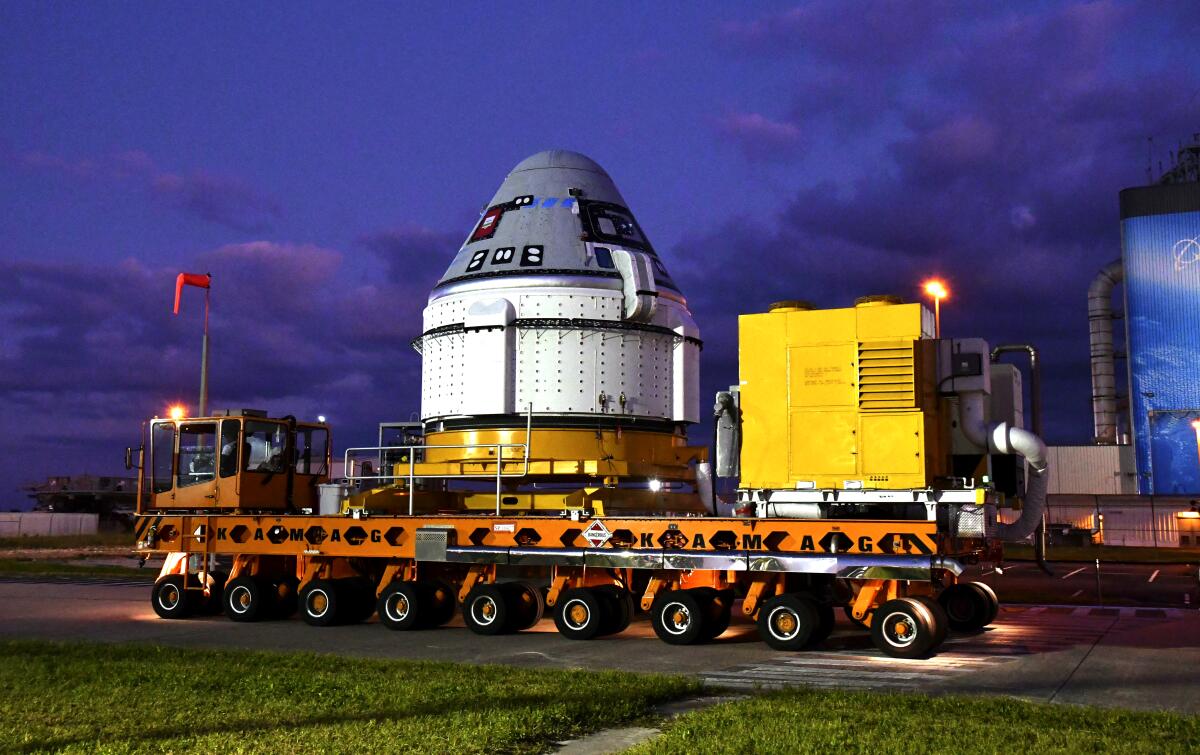Boeing Starliner set for June 1 launch following helium leak

- Share via
The launch of Boeing’s Starliner capsule, first delayed due to a balky rocket valve and later because of a helium leak, is now set for June 1.
The original May 6 launch was scuttled hours before takeoff because of a malfunctioning valve on the Atlas V rocket that would send the spacecraft to the International Space Station. It was rescheduled for May 10 and then a second time for May 17, when it was decided to replace the valve.
All systems seemed go until yet another problem cropped up, this time with the capsule. A helium leak was detected coming from the spacecraft’s propulsion system.
After two more delays, officials with NASA, Boeing and United Launch Alliance, the rocket maker, said earlier this week that the flight would be postponed indefinitely — but now NASA is aiming for a June 1 launch.
“It has been important that we take our time to understand all the complexities of each issue,” said Steve Stich, manager of NASA’s Commercial Crew Program.
NASA said late Wednesday that the June 1 launch is set for 9:25 a.m. Pacific time. If that date is not met, the Starliner could launch the next day, June 5 or June 6.
The delays are particularly nettlesome for the Arlington, Va., aerospace giant because it’s years behind SpaceX in launching a crewed capsule to service the space station.
Both companies were given multibillion-dollar contracts in 2014 to develop the craft, and since 2020 Elon Musk’s Hawthorne company has ferried eight operations crews to the base — while Boeing has managed only two unmanned flights.
The companies were chosen by NASA after the agency had to rely on the Russian program to send U.S. astronauts to the station when the space shuttle program was ended in 2011.
Boeing has reportedly had to eat $1.5 billion in Starliner cost overruns, and it can ill afford a failure with astronauts aboard, especially after the two crashes of its 737 Max 8 jets and a door plug blowout during a 737 Max 9 flight this year to Ontario International Airport in San Bernardino County.
“Boeing has so much to prove. They’re just about four years behind SpaceX,” said Laura Forczyk, executive director of space industry consultancy Astralytical. “They need to make sure they have all their ducks lined up in a row.”
More to Read
Inside the business of entertainment
The Wide Shot brings you news, analysis and insights on everything from streaming wars to production — and what it all means for the future.
You may occasionally receive promotional content from the Los Angeles Times.











